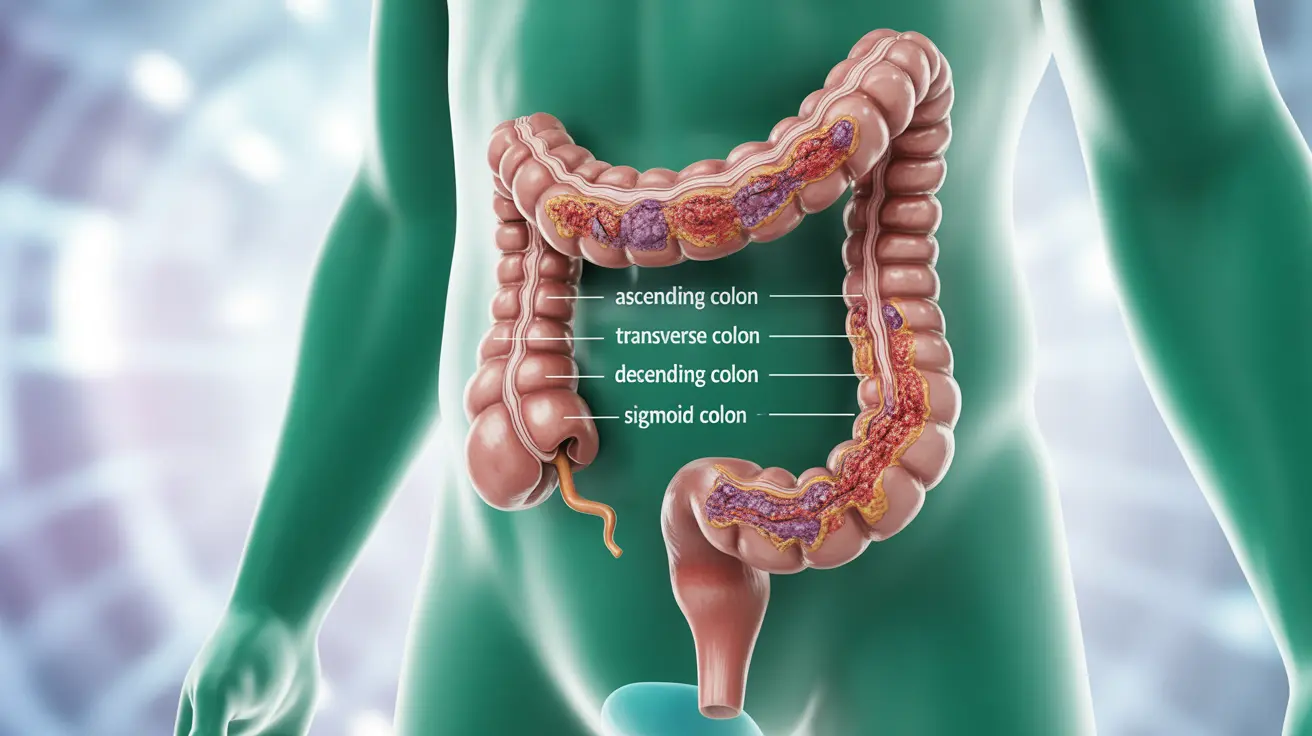A colon cancer diagnosis can be challenging enough, but understanding the possibility of recurrence and how to monitor for it is equally important for long-term health. Colon cancer recurrence happens when cancer returns after initial treatment and a period of remission. Being informed about the signs, prevention strategies, and available treatments can help patients take proactive steps in their healthcare journey.
This comprehensive guide explores what you need to know about colon cancer recurrence, including warning signs, follow-up care, risk factors, and ways to potentially reduce your risk through lifestyle modifications.
Understanding Colon Cancer Recurrence
Colon cancer can return in three main ways: local recurrence (in the same original location), regional recurrence (in nearby lymph nodes or tissues), or distant recurrence (metastasis to other organs). Each type requires different approaches to detection and treatment.
Warning Signs and Symptoms
Recognizing potential signs of recurrence early is crucial for optimal treatment outcomes. Common warning signs may include:
- Unexplained changes in bowel habits
- Persistent abdominal pain or cramping
- Unexpected weight loss
- Blood in stool or rectal bleeding
- Fatigue or weakness
- New or unusual pain in the pelvis or back
Follow-up Care and Monitoring
Regular monitoring is essential for early detection of potential recurrence. A typical follow-up schedule might include:
- Physical examinations every 3-6 months for the first 2 years
- CEA blood tests to check for tumor markers
- Regular CT scans of the chest, abdomen, and pelvis
- Colonoscopy one year after surgery, then every 3-5 years
- More frequent monitoring for high-risk patients
Risk Factors for Recurrence
Several factors can influence the likelihood of colon cancer returning:
- Initial cancer stage and grade
- Completeness of surgical removal
- Response to initial treatment
- Genetic factors
- Overall health status
- Lifestyle factors
Lifestyle Modifications to Reduce Risk
While some risk factors cannot be controlled, certain lifestyle changes may help reduce the risk of recurrence:
- Maintaining a healthy weight
- Regular physical activity
- Eating a balanced diet rich in fruits, vegetables, and whole grains
- Limiting processed foods and red meat
- Avoiding alcohol or drinking in moderation
- Quitting smoking
- Managing stress effectively
Treatment Options for Recurrent Cancer
If colon cancer does return, several treatment approaches may be considered:
- Additional surgery
- Targeted radiation therapy
- Chemotherapy with new drug combinations
- Immunotherapy
- Clinical trials of emerging treatments
- Palliative care when needed
Frequently Asked Questions
What are the most common signs and symptoms of colon cancer recurrence?
The most common signs include changes in bowel habits, abdominal pain, unexplained weight loss, blood in stool, fatigue, and new pain in the pelvis or back area. Any persistent symptoms should be reported to your healthcare provider immediately.
How often should I have follow-up tests to monitor for colon cancer coming back?
Follow-up testing typically includes physical exams every 3-6 months for the first two years, regular CEA blood tests, periodic CT scans, and colonoscopies. The specific schedule will be determined by your healthcare team based on your individual risk factors.
What factors increase the risk of colon cancer recurrence after treatment?
Major risk factors include advanced initial cancer stage, incomplete surgical removal, poor response to initial treatment, certain genetic factors, and overall health status. Lifestyle factors such as obesity, poor diet, and smoking may also play a role.
Can changes in diet and lifestyle help reduce the chance of colon cancer recurrence?
Yes, maintaining a healthy lifestyle can potentially help reduce recurrence risk. This includes eating a balanced diet rich in fruits and vegetables, staying physically active, maintaining a healthy weight, limiting alcohol consumption, and not smoking.
What treatment options are available if colon cancer comes back after initial therapy?
Treatment options for recurrent colon cancer may include additional surgery, new combinations of chemotherapy drugs, targeted radiation therapy, immunotherapy, and participation in clinical trials. The specific treatment plan will depend on the location and extent of the recurrence.




